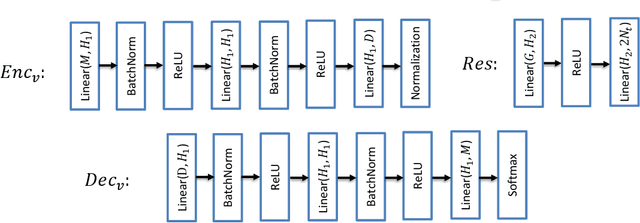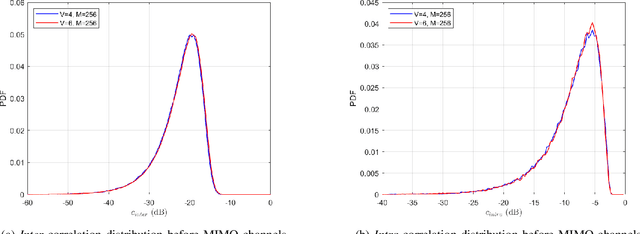Chin-Wei Hsu
Autocorrelation and Spectrum Analysis for Variable Symbol Length Communications with Feedback
Nov 21, 2022Abstract:Variable-length feedback codes can provide advantages over fixed-length feedback or non-feedback codes. This letter focuses on uncoded variable-symbol-length feedback communication and analyzes the autocorrelation and spectrum of the signal. We provide a mathematical expression for the autocorrelation that can be evaluated numerically. We then numerically evaluate the autocorrelation and spectrum for the variable-symbol-length signal in a feedback-based communication system that attains a target reliability for every symbol by adapting the symbol length to the noise realization. The analysis and numerical results show that the spectrum changes with SNR when the average symbol length is fixed, and approaches the fixed-length scheme at high SNR.
Learning-Based Near-Orthogonal Superposition Code for MIMO Short Message Transmission
Jun 30, 2022



Abstract:Massive machine type communication (mMTC) has attracted new coding schemes optimized for reliable short message transmission. In this paper, a novel deep learning-based near-orthogonal superposition (NOS) coding scheme is proposed to transmit short messages in multiple-input multiple-output (MIMO) channels for mMTC applications. In the proposed MIMO-NOS scheme, a neural network-based encoder is optimized via end-to-end learning with a corresponding neural network-based detector/decoder in a superposition-based auto-encoder framework including a MIMO channel. The proposed MIMO-NOS encoder spreads the information bits to multiple near-orthogonal high dimensional vectors to be combined (superimposed) into a single vector and reshaped for the space-time transmission. For the receiver, we propose a novel looped K-best tree-search algorithm with cyclic redundancy check (CRC) assistance to enhance the error correcting ability in the block-fading MIMO channel. Simulation results show the proposed MIMO-NOS scheme outperforms maximum likelihood (ML) MIMO detection combined with a polar code with CRC-assisted list decoding by 1-2 dB in various MIMO systems for short (32-64 bit) message transmission.
Deep Learning Based Near-Orthogonal Superposition Code for Short Message Transmission
Nov 11, 2021



Abstract:Massive machine type communication (mMTC) has attracted new coding schemes optimized for reliable short message transmission. In this paper, a novel deep learning based near-orthogonal superposition (NOS) coding scheme is proposed for reliable transmission of short messages in the additive white Gaussian noise (AWGN) channel for mMTC applications. Similar to recent hyper-dimensional modulation (HDM), the NOS encoder spreads the information bits to multiple near-orthogonal high dimensional vectors to be combined (superimposed) into a single vector for transmission. The NOS decoder first estimates the information vectors and then performs a cyclic redundancy check (CRC)-assisted K-best tree-search algorithm to further reduce the packet error rate. The proposed NOS encoder and decoder are deep neural networks (DNNs) jointly trained as an auto encoder and decoder pair to learn a new NOS coding scheme with near-orthogonal codewords. Simulation results show the proposed deep learning-based NOS scheme outperforms HDM and Polar code with CRC-aided list decoding for short(32-bit) message transmission.
 Add to Chrome
Add to Chrome Add to Firefox
Add to Firefox Add to Edge
Add to Edge